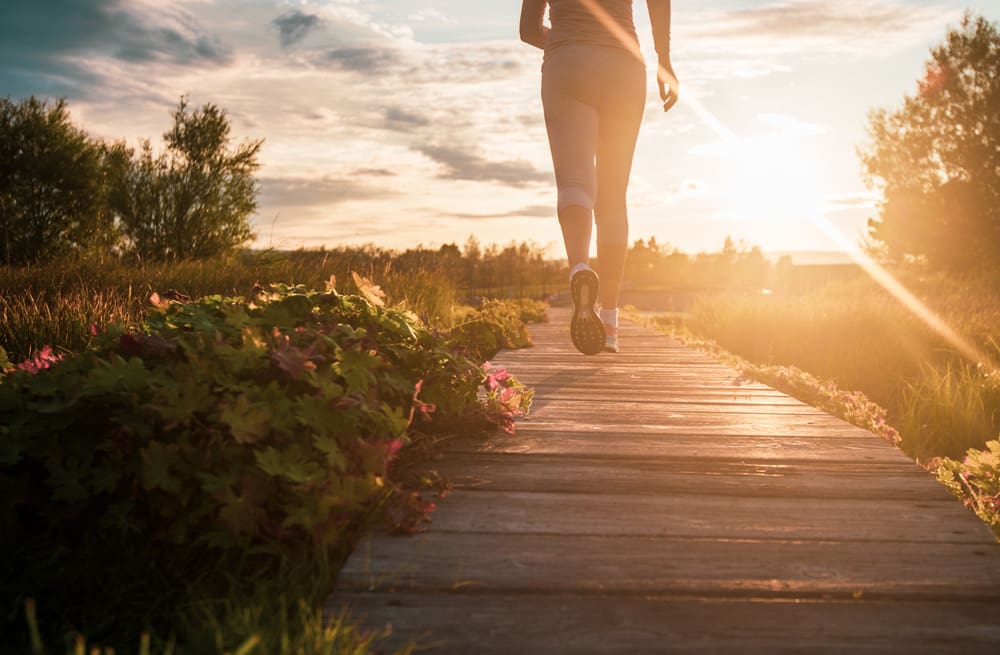In this blog, we have been longtime, consistent advocates for the importance of exercise for people in recovery from a substance use disorder. Of course, exercise is important for everyone and contributes to both physical and mental wellness. For a person in recovery, however, there is an added benefit: Exercise can help you continue to steer clear of drugs or alcohol.
Let’s take a look at the benefits of exercise in recovery by looking back on some of our previous entries on the topic.
A Look at the Benefits of Exercise
In a blog post titled “Opt In to an Exercise Routine to Support Your Recovery,” we listed a range of ways exercise can be a pillar of your recovery. That list includes:
- Exercise can strengthen your immune system.
- Exercise can boost your energy—and your mood.
- Exercise can lead to more restful sleep.
- Exercise can help you battle boredom—and cravings.
- Exercise can lessen chronic pain.
As we explain at greater length in the blog post, each of those benefits provides ongoing support for your recovery. Indeed, the benefits are so significant for a person in recovery that they should overcome any resistance to the idea of exercise they may be feeling. We understand that some people really dislike exercise (or at the very least have never found an activity that appeals to them), but keeping your recovery intact is an essential goal that physical activity can help you achieve each and every day.
Exercise for Those Who Hate to Exercise
In a blog post titled “When It Comes to Exercise, Little Changes Can Mean a Lot to Your Recovery,” we considered some easy ways you could add some physical activity to your day without becoming a gym rat.
We wrote, in part:
Plenty of people aren’t up for [regular, strenuous exercise], and so they end up believing that exercise just isn’t for them. But what if we were able to shift that way of thinking to a more inclusive idea about exercise?
What if we reminded ourselves that all exercise is good exercise (as long as it is not likely to lead to injury)?
Now the decision to park a little farther away or to take the elevator or to walk to the coffee shop is a decision to exercise. And given how often we have the chance to make these small decisions, choosing the exercise option more often than not can really add up to a significant increase in physical activity.
You can read the full blog to see our full argument. But we want to reiterate the key point here: All exercise is good exercise.
Putting Exercise in Context
In a blog post titled “The Big Three: Healthy Food, Regular Exercise, Restful Sleep,” we considered how good nutrition, ongoing physical activity, and proper rest work together to support your recovery.
It really comes down to this: eating well, exercising regularly, and sleeping well all support your physical wellbeing and your mental health. Good health outcomes for your body and your mind support good outcomes when it comes to your recovery efforts.
So thinking of these aspects of your life as “the big three” when it comes to your recovery can help you make positive choices in each area. That previous blog entry has some ideas to get you started in all three categories.
The Ernest Trail is a Wonderful Place for Exercise
In a blog post titled “Ernst Trail – A Natural Metaphor for the Recovery Journey,” we considered recovery through the lens of this beautiful natural resource located not too far from French Creek Recovery Center. We explained how getting some exercise out on the trail supports your recovery.
We wrote, in part:
Spending time outdoors…allows the sun to provide a much-needed dose of Vitamin D, which offers many healthful benefits including lessening the symptoms of depression. Surrounding yourself with natural beauty also has mental health benefits and tends to lessen the tendency to ruminate about the past in unhelpful ways. Being in the moment and surrounded by beauty is a great way to put your worries down for a moment and remind yourself how much there is to enjoy—and how much easier it is to enjoy the positives in life when you are sober.
We encourage you to check out the full post to discover ways in which the trail serves as a way to think about recovery. And then, if you are able, we encourage you to head out to the trail itself.
Exercise Your Option to Give Up Drugs or Alcohol
Drug or alcohol use can quickly come to dominate your life, making it difficult to work, maintain relationships, and so much more. That is why it is so important to seek out effective treatment for a substance use disorder—the kind of treatment you can find at French Creek Recovery Center, located in Meadville, Pennsylvania.
At French Creek, we don’t judge the person who is struggling. We treat the brain disease that has led to their difficulties. And we provide ongoing support after treatment comes to an end so that you will feel confident as your recovery journey gets underway.

